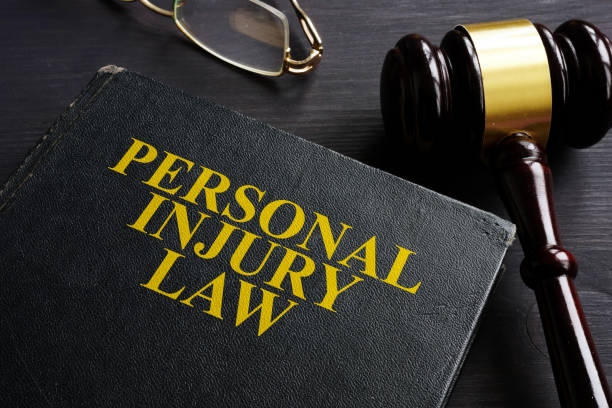Demystifying Personal Injury Law

Introduction
Personal injuries can disrupt lives in an instant, leaving individuals physically and emotionally scarred. In such trying times, it’s crucial to understand your rights and the legal recourse available to you. At Pinkston Law Group, P.C., we believe in empowering our clients with knowledge. In this comprehensive guide, we delve into the intricate world of personal injury law, shedding light on what it entails, how it works, and what steps you can take if you’ve been injured due to someone else’s negligence.
What Is Personal Injury Law?
Defining Personal Injury
Personal injury law, also known as tort law, encompasses legal matters that involve physical or psychological harm to individuals as a result of someone else’s negligence, intentional actions, or strict liability. It is a branch of civil law that allows individuals who have been injured to seek compensation for their losses from the responsible party or parties.
Key Principles of Personal Injury Law
Duty of Care Individuals and entities have a legal obligation to exercise reasonable care to prevent harm to others. This duty of care varies depending on the circumstances but generally requires people to act prudently and avoid foreseeable risks.
Negligence Negligence is a fundamental concept in personal injury law. It occurs when a person or entity breaches their duty of care, resulting in harm to another party. Proving negligence is a critical element in personal injury cases.
Causation To succeed in a personal injury claim, the injured party must establish that the defendant’s negligence directly caused their injuries. This involves demonstrating both cause in fact (the defendant’s actions were the actual cause) and proximate cause (the harm was a foreseeable consequence).
Damages Personal injury claims seek compensation (damages) for the losses suffered by the injured party. Damages can include medical expenses, lost wages, pain and suffering, property damage, and more.
Types of Personal Injury Cases
Personal injury law covers a wide range of cases, each with its unique characteristics and legal principles. Here are some common types of personal injury cases:
Motor Vehicle Accidents Motor vehicle accidents, including car, truck, motorcycle, and pedestrian accidents, are among the most prevalent personal injury cases. These cases often involve claims of negligence, such as reckless driving, distracted driving, or drunk driving.
Slip and Fall Accidents Slip and fall accidents occur when individuals are injured on someone else’s property due to hazardous conditions, such as wet floors, uneven surfaces, or inadequate lighting. Property owners or occupants may be held liable for failing to maintain a safe environment.
Medical Malpractice Medical malpractice cases involve allegations of negligence by healthcare professionals, including doctors, nurses, and hospitals. These cases can result from misdiagnosis, surgical errors, medication mistakes, or inadequate patient care.
Product Liability Product liability cases arise when defective or dangerous products cause injuries to consumers. Manufacturers, distributors, and sellers may be held liable for injuries resulting from product defects or failures.
Workplace Injuries Workplace injuries can lead to workers’ compensation claims or personal injury lawsuits, depending on the circumstances. Employers have a duty to provide a safe work environment, and injuries caused by employer negligence may lead to legal action.
The Legal Process in Personal Injury Cases
Navigating a personal injury case involves several key steps, from filing a claim to reaching a resolution. Understanding this process can help injured individuals better comprehend what to expect:
Filing a Personal Injury Claim The process typically begins with the injured party (the plaintiff) filing a personal injury claim against the at-fault party (the defendant). This initiates legal proceedings and formally notifies the defendant of the allegations.
Investigating Your Case Investigating the case is a crucial step in determining liability and gathering evidence to support the claim. This may involve collecting medical records, accident reports, witness statements, and other relevant documentation.
Negotiations and Settlements Many personal injury cases are resolved through negotiations between the parties involved. Insurance companies often play a significant role in these negotiations, as they may represent the defendant. The goal is to reach a settlement that provides fair compensation for the plaintiff’s losses.
Trial, if Necessary If negotiations do not lead to a satisfactory settlement, the case may proceed to trial. During a trial, both sides present evidence, call witnesses and make legal arguments. A judge or jury then decides the outcome of the case.
Compensation in Personal Injury Cases
Compensation is a central component of personal injury cases. It aims to provide financial relief to injured parties for the losses they have endured. Compensation can be categorized into three main types:
- Economic Damages
Economic damages are quantifiable financial losses resulting from the injury. They typically include:
Medical Expenses Costs related to medical treatment, surgery, hospitalization, medications, rehabilitation, and therapy.
Lost Wages Compensation for income lost due to the injury, including missed work days and reduced earning capacity.
Property Damage Reimbursement for damage to personal property, such as vehicles in motor vehicle accidents.
- Non-Economic Damages
Non-economic damages are less tangible losses that are more challenging to quantify. They can include:
Pain and Suffering Compensation for physical pain, emotional distress, and mental anguish caused by the injury.
Loss of Enjoyment of Life Damages for the loss of the ability to participate in activities and hobbies as before the injury.
Loss of Consortium Compensation for the impact of the injury on the injured party’s relationship with their spouse or family members.
- Punitive Damages
Punitive damages are rarely awarded and are intended to punish the defendant for particularly egregious behavior. They are not meant to compensate the plaintiff but rather to deter similar misconduct by the defendant and others.
The Importance of Legal Representation in Personal Injury Cases
Benefits of Hiring a Personal Injury Attorney
Seeking legal representation is crucial when pursuing a personal injury claim. Personal injury attorneys bring numerous advantages to the table:
Legal Expertise Attorneys have a deep understanding of personal injury laws and regulations, enabling them to navigate the complexities of the legal system effectively.
Advocacy Attorneys advocate for their clients’ rights and interests, ensuring they receive fair compensation for their losses.
Negotiation Skills Attorneys are skilled negotiators who can engage with insurance companies and opposing parties to secure favorable settlements.
Trial Experience If a case goes to trial, attorneys have the experience and expertise to present a compelling case and advocate for their clients in court.
Choosing the Right Attorney
Selecting the right personal injury attorney is a critical decision. Consider the following factors when choosing legal representation:
Experience Look for an attorney with significant experience in personal injury cases, particularly those similar to your own.
Reputation Research the attorney’s reputation and track record. Read reviews and ask for referrals from past clients.
Communication Choose an attorney who communicates clearly and keeps you informed about the progress of your case.
Resources Ensure the attorney has the resources and support staff necessary to handle your case effectively.
The Call to Action
Why Choose Pinkston Law Group, P.C.
At Pinkston Law Group, P.C., we are dedicated to providing exceptional legal representation to individuals who have suffered personal injuries. Our experienced team of attorneys understands the physical, emotional, and financial challenges you may be facing. We are committed to advocating for your rights and helping you secure the compensation you deserve.
Contact Us Today
If you or a loved one has been injured due to someone else’s negligence, don’t hesitate to seek legal counsel. Contact Pinkston Law Group, P.C. today to schedule a consultation. Our attorneys are here to guide you through the legal process, protect your rights, and help you pursue justice and fair compensation.
Understanding personal injury law is the first step toward securing your legal rights and holding negligent parties accountable. Let us be your trusted partners in seeking the justice and compensation you deserve. Contact Pinkston Law Group, P.C. today and take the first step towards a brighter legal future.





